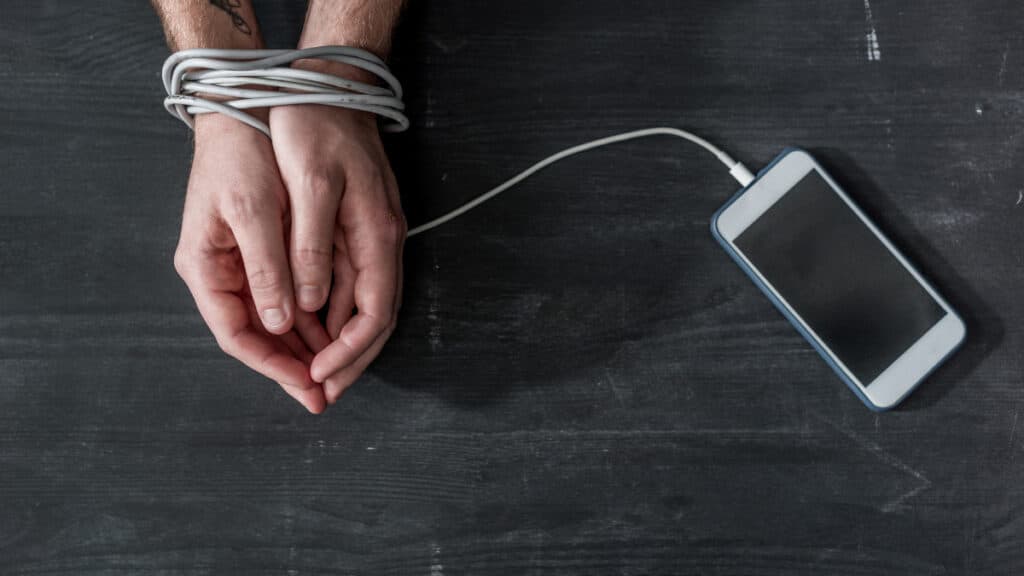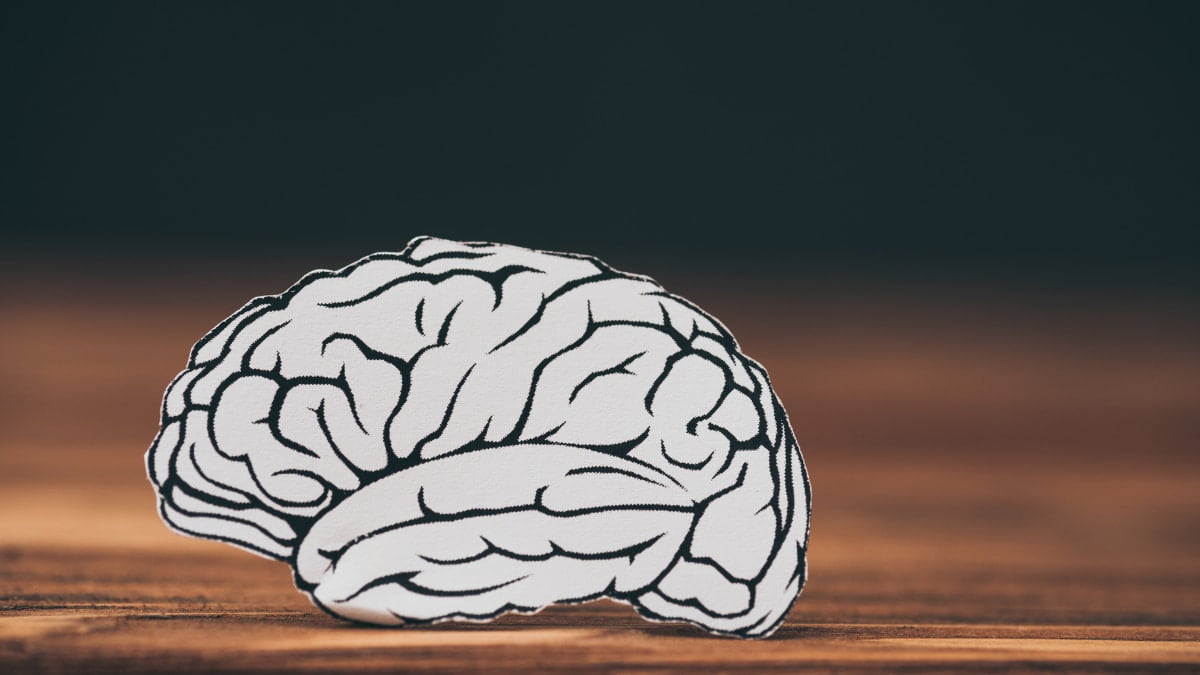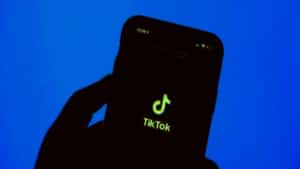With more than 3.6 billion users globally, Social media and mental health has established itself as a staple in our lives. It has developed into a potent instrument for social interaction, knowledge sharing, and information gathering. But because of its increasing popularity, it has also turned into a source of stress and worry for many people.
This blog article will examine the data on Social media and mental health usage, as well as the advantages and disadvantages of utilising it. We’ll examine how using social media in various ways might impact our mental health and discuss appropriate practises.
Table of Contents
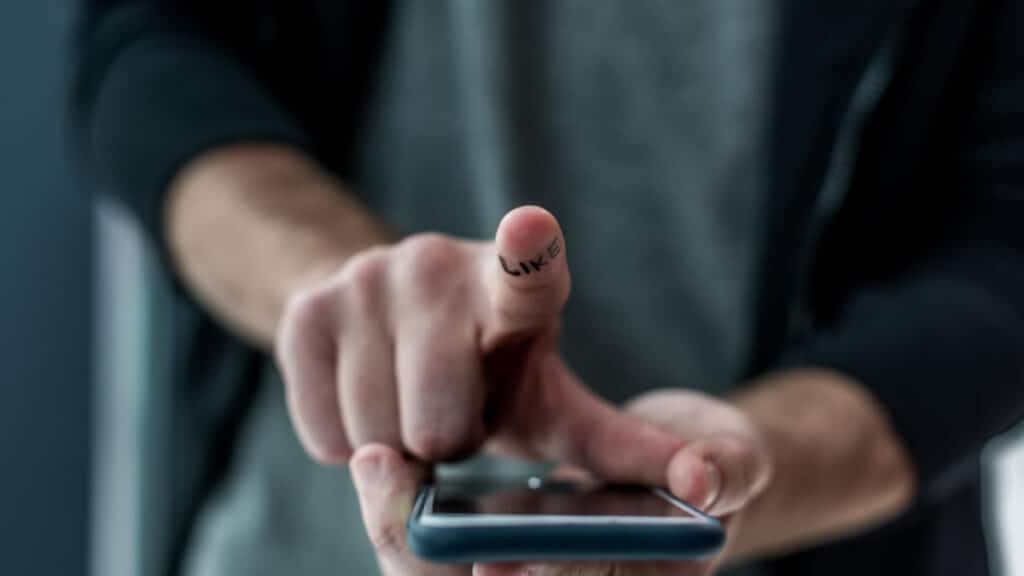
What impact will social media have on 2023 Social media and mental health statistics ?
Statistics on Social Media Mental Health in 2023 • GITNUX
Adolescents who use social media for more than three hours a day are more likely to experience mental health issues. 32% of 12- to 17-year-old children express anxiety, and 13% report depression. 25% of those aged 18 to 25 report having a mental illness. These age groups claim to use social media heavily.
How does keeping off Social media and mental health ?
HelpGuide.org’s guide on social media and mental health
According to a 2018 University of Pennsylvania study, limiting daily social media use to 30 minutes significantly lowers feelings of anxiety, despair, loneliness, difficulty sleeping, and FOMO. However, you don’t have to substantially reduce your social media use if you want to improve your mental health.
How will Social media and mental health affect in the future ?
Social media use has been associated with insomnia, sadness, and anxiety [6]. Furthermore, reference [7] cautions against the damaging effects that excessive social media use may have on young people’s mental health.
Does using Social media and mental health promote ?
However, excessive social media use and internet use have been associated to depression, stress, social isolation, and cyberbullying [10]. Regular use of social media is also connected to negative habits including addiction, self-harm, and suicidality that can be hazardous to mental health.
In 2023, how many people will be active on Social media and mental health ?
The 4.89 billion
Global social media usage is anticipated to reach 4.89 billion people by 2023.
How many users of Social media and mental health suffer from mental disorders ?
Nearly 25% of teenagers think social media has a bad influence. The lifetime prevalence of any mental health condition among teenagers is 49.5%, and 22.2% of adolescents will experience severe mental impairment throughout their lifetimes, according to the National Institute of Mental Health.
How can Social media and mental health use be reconciled ?
Numerous days off can significantly enhance wellbeing, depression, and anxiety, according to research. Additionally, you can cut back without completely quitting: restricting your use of Facebook, Instagram, and Snapchat to just 10 minutes per day will help you feel less lonely and depressed.
The Most Important Statistics Regarding Social Media Mental Health
More than 6 in 10 males and 5 in 10 women are dependent on social media.
Online abuse has been a problem for 1 in 6 teenagers.
A 2018 survey found that 31% of teenagers think social media generally has a good impact on their lives.
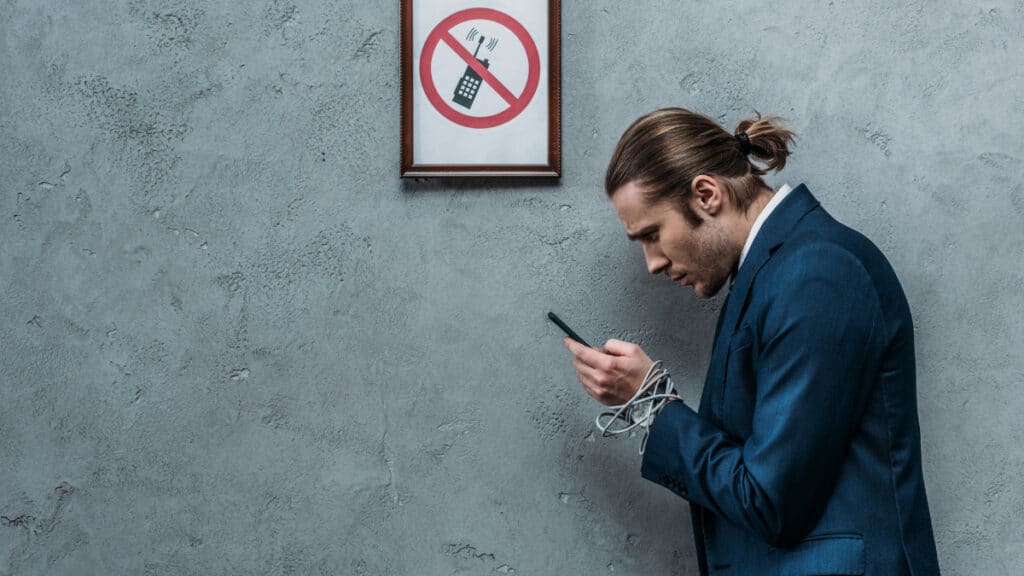
According to the National Institute of Mental Health, 22.2% of adolescents would experience severe mental impairment throughout their lifetimes, and there is a lifetime prevalence of any mental health condition among adolescents of 49.5%.
More than 6 in 10 males and 5 in 10 women are dependent on social media.
On average, people use social media for one hour and forty minutes each day.
56% of Americans between the ages of 18 and 29 report feeling anxious when unable to access their social media accounts.
13% of people worldwide suffer from mental health conditions.
With an average loss of 10.1 years in life expectancy, those with mental health disorders have a mortality rate that is much greater than that of the general population.
1 in 6 teenagers have engaged in harmful behaviour
According to a survey, 90% of kids think that internet harassment is an issue for young people. Teenagers stated that 24% of them thought social media generally had a bad impact. 45% of respondents that it has no influence, 31% that it has a good impact.
Between 2005 and 2017, there was a 52% increase in the proportion of teenagers who reported having serious depressive symptoms in a given year. In adults 18 to 25 years old, it increased by 63% between 2009 and 2017. The percentage of young adults who reported psychological distress in a given month increased by 71% between 2008 and 2017. Even worse, throughout that same period, young adults’ rate of suicidal thoughts rose by 47%.
According to a research, 94% of participants said they felt uneasy without their phones. When someone else used their phone, 80% of people felt envious, and 70% said they would feel hopeless, terrified, and unhappy if their phone were lost or stolen.
According to a survey, 89 percent of college students report feeling phantom vibrations. This is the sensation of non-vibrating vibrations coming from a mobile device. People start imagining notifications because they crave them so much.
Mental Social media and mental health and Covid 19 Statistics
People who were separated because of the early COVID-19 quarantine began using additional social media outlets. It’s important to settle conflicting claims about how social media use affects mental health.
According to Statista research from 2020, 63% of American parents said that their teenagers utilised social media more frequently than they had before the pandemic.
59% of Americans have had mental health issues as a result of the COVID-19 pandemic.
Overall studies showed a 95% correlation between increased social media use and anxiety symptoms, with only a small (26.77%) amount of variation amongst research. Similar to this, an increase in social media usage was 95% related with depressed symptoms, and there was only moderate (67.16%) study heterogeneity.
Only among the participants from the United States did more social media use in a typical day significantly correlate with worse mental health. The social media variables explained between 7.8% and 17.6% of the GHQ variance in the UK and Australia, respectively.
Over 4.6 billion people worldwide used social media as of 2022. When physical distance was required due to the epidemic, people had to find other means to meet their social requirements. This led to a significant growth in the use of social media.
In a U.S. study, 40 million tweets from the same time period in 2019 were compared to 60 million tweets from the first wave of the pandemic (March to May 2020). They discovered that overall, mental health symptomatic expressions grew by 14% throughout the COVID-19 period. They did this by using machine learning classifiers to identify the social media language indicative of mental health disorders (anxiety, depression, stress, and suicidal ideation).
2,316,817 individuals contributed 4,213,005 tweets about mental health and COVID-19. A total of 51.3% of these tweets dealt with depression, while 45.66%, 5.35%, and 3.56% of them dealt with anxiety, sleeplessness, and addiction, respectively.
Statistics on Social media and mental health by age
The prevalence of mental health issues in children and young people has increased since the introduction of cellphones. Between 2005 and 2017, there was a 52% increase in the proportion of teenagers who reported having serious depressive symptoms in a given year. In adults 18 to 25 years old, it increased by 63% between 2009 and 2017.
The percentage of young adults who reported psychological distress in a given month increased by 71% between 2008 and 2017. Even worse, throughout that same period, young adults’ rate of suicidal thoughts rose by 47%.
90% of American teenagers between the ages of 13 and 17 use or have used social media, according to the American Academy of Child & Adolescent Psychiatry. 92% of adolescents and young adults had smartphones by 2015. As a smartphone, however.
High levels of depressive symptoms rose by 33% between 2010 and 2015, according to a 2017 survey of students in eighth through twelfth grades. In this age group, girls’ suicide rates rose by 65%.
The number of child suicides rose by up to 150%, while the number of females aged 10 to 14 who self-harmed nearly tripled. These trends indicate the use of social media.
Eighth-graders who use social media more than 10 hours per week are 56% more likely to report being sad than those who use it less.
Adolescents who use social media for more than three hours a day are more likely to experience mental health issues.
32% of 12- to 17-year-old children express anxiety, and 13% report depression. 25% of those aged 18 to 25 report having a mental illness. These age groups claim to use social media heavily.
Online harassment or cyberbullying was experienced by 59% of US teenagers. 90% of respondents believe that other persons their age are also affected by this harassment. It is a significant issue, according to 63%.
The Centres for Disease Control and Prevention (CDC)Trusted Source reports that suicide attempts among American teenagers rose by 31% from 2019 to 2020, and emergency room visits for possible suicide attempts among girls aged 12 to 17 rose by 51% in 2021 compared to the same period in 2019.
Children aged 12 to 17 report depression in 13% of cases and anxiety in 32%. One in five (18 to 25 year olds) report having a mental ailment. Social media usage is reportedly strong across these age groups.
Cyberbullying and online harassment were experienced by 59% of US teenagers. 90% believe other individuals their age are also affected by the harassment, according to them. According to 63%, it’s a significant issue.
Conclusion ( Social media and mental health )
Both positive and negative effects of social media can have a significant impact on mental health. According to statistics, while it may be a terrific way to stay in touch with loved ones, it can also result in feelings of loneliness and sadness. You should be aware of how much time you spend on social media and keep in mind to take pauses and devote your attention to things that can enhance your mental health. For total wellbeing, it’s important to take care of your mental health, therefore make sure you set the proper boundaries.
References :- ( Social media and mental health )
BMC, “Social media use and mental health during the COVID-19 pandemic in young adults: a meta-analysis of 14 cross-sectional studies”, quoted in [Current Month] 2023 (Source)
cited in [Current Month] 2023 (Source): Frontiers, “Social Media Use and Its Associations With Mental Health 9 Months After the COVID-19 Outbreak: A Cross-National Study”
In [Current Month] 2023 (Source), PMC: “Opportunities and challenges of using social media big data to assess mental health consequences of the COVID-19 crisis and future major events”
In [Current Month] 2023 (Source), JMIR: “Publications Tracking the Impact of COVID-19 and Lockdown Policies on Public Mental Health Using Social Media: Infoveillance Study”
“49 Social Media and Mental Health Statistics (2022)” by CrossRiverTherapy, quoted in [Current Month] 2023 (Source).

The following are some effective strategies: [Current Month] 2023 (Source)’s “40+ Frightening Social Media and Mental Health Statistics”
According to JEC’s “Is Instagram Causing Poorer Mental Health Among Teen Girls?” article, which was cited in [Current Month] 2023 (Source),
The Guardian, “Depression in girls linked to higher use of social media”, quoted in [Current Month] 2023 (Source).
referenced in [Current Month] 2023 by NCHR: “Social Media and Adolescents’ and Young Adults’ Mental Health” (Source)
HealthLine, Social media and mental health and Youth :- How to Find Balance After Pandemic Spikes in Use”, mentioned in [Current Month] 2023 (Source).
Social media and mental health networking is a fantastic way to stay in touch with loved ones, stay informed about news, and keep up with the newest dance trend. Many of us enjoy social media, yet this constant connection comes with concerns for our emotional health. More than a third of Americans believe social media is bad for their mental health, according to a survey by the American Psychiatric Association.
According to studies, using social media excessively might make us feel alone and lonely as we relocate our connections online. Reading articles about friends and celebrities who appear to be more well-known, attractive, successful, and having a good time than us all the time can make us feel envious and depressed.
Keep it short: You could discover that a few quick social media sessions each day make you feel better than a 45-minute marathon feed-scrolling session.
Avoid viewing after 10 p.m. if you frequently become exhausted by wandering on social media “rabbit holes” late at night.
Avoid the swamp: There are unfriendly and critical online users. There are companies that make money by stirring up dissent, rage, fear, and mistrust.
It’s a surefire sign of toxic content if you leave a conversation or website feeling angry, nervous, or depressed.
Don’t go near it.
Trim unnecessary contacts: You’ve probably made a lot of online friends and contacts over time, in addition to the individuals and organisations you follow.
More than 3,000 individuals from the Understanding Society household survey, who were between the ages of 10 and 15, participated in the study, which was written up in the Journal of Medical Internet Research. The study looked at the relationship between social media use and mental health.
According to the World Health Organisation, half of all mental illnesses start before the age of 14, and one in seven teenagers (aged 10 to 19) suffer from a mental disease.
Over the past 20 years, there has been an upsurge in the number of young people with mental health issues, and social media is frequently listed as one of the causes.
To evaluate this, researchers used a five-point scale from “none” to “seven or more hours” to count the amount of hours spent on social media by children between the ages of 12 and 13. Then, at the ages of 13 and 14, they looked at data on self-esteem and social connection (i.e., having close friends), and at the ages of 14 and 15, they evaluated mental health.
The results showed that there was little evidence to support the idea that teens in the UK who spend more time on Social media and mental health experience issues in the future.
Social media and mental health and the detrimental effects it has on young people’s self-esteem, however, might be related.
The researchers are now advocating for preventative measures and interventions to enhance mental health issues related to social media use, while taking into account elements like self-esteem. This can involve specialised instruction on social media management.
“Our findings provide some reassurance that social media may not be as harmful to young people’s mental health as previously thought,” said lead author Dr. Ruth Plackett of the UCL Institute of Epidemiology & Health.
“However, we also need to be conscious that social media can affect young people’s mental health in both positive and negative ways, and there are still many unresolved issues.
Our study demonstrates the importance of taking into account elements like self-esteem when attempting to improve young people’s mental wellbeing, for instance, even though social connectivity did not appear to explain the association between social media use and mental health.
Social media use may be related to eating disorders in young people, according to previous literature reviews and cross-sectional research, including a recent UCL-led paper.
The new study, however, makes use of a longitudinal survey analysis to shed more light on the nature of the link and provide understanding of the long-term effects of social media on young people.
According to Dr Plackett, “What makes our longitudinal survey analysis unusual is that it looks at this link over time and finds no substantial impact on overall mental health, which is similar to several other longterm research in this field.
This shows that the two’s relationship is complicated and probably influenced by a number of other factors, so we should exercise caution when attributing mental health issues to social media.
The School for Public Health Research (SPHR), part of the National Institute for Health and Care Research (NIHR), provided funding for the study.
